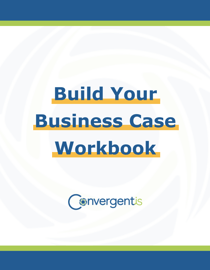In the intricate world of B2B procurement, where every decision carries financial weight, supplier fees stand as silent giants that can significantly impact your bottom line. These fees, though often overshadowed by the grandeur of procurement deals and supplier negotiations, are the unassuming charges that play a pivotal role in your purchasing transactions.
Although the types of fees may differ between industries, a couple will remain pretty standard across the procurement process. Below, we consider a brief overview of these fees and why you should care about them as a procurement leader.
Why You Should Have an Elementary Understanding of Supplier Fees
First, cost control. As a procurement leader, a major part of your role is to understand the impact of fees on the overall cost of procurement. Since many fees may be involved, learning to manage them can help procurement leaders identify additional cost-saving opportunities and negotiate more favourable terms with suppliers.
In addition, to the negotiation aspect, you will also want to add supplier fees as part of the larger procurement budget, to ensure that there are enough resources to cover expenses without any surprises.
Since supplier fees can make up such a larger portion of the procurement budget, understanding the differences in these fees can also help leaders make strategic decisions when it comes to supplier selection and negotiation. These fees can then become part of the equation when comparing supplier offers and evaluating the total cost of ownership.
The Different Types of SAP Supplier Fees
Various types of supplier fees can exist, and these fees can vary depending on the industry, the specific supplier, and the terms of the procurement and related modules you have at play. Here are some common types of supplier fees that can be encountered in B2B procurement:
Listing Fees
These fees are typically associated with e-commerce platforms or marketplaces where suppliers pay to list their products or services. Listing fees can vary based on factors such as the category of the product or service, the duration of the listing, and the prominence of the listing.
Transaction Fees
Transaction fees are charges incurred with each purchase or transaction made between the buyer and the supplier. They can be calculated as a percentage of the total transaction value, a flat fee per transaction, or a combination of both.
What Are SAP Business Network Supplier Fees?
If your team ends up interacting on the SAP Business Network, SAP’s B2B collaboration platform, you will find options for free and subscription accounts for suppliers. Supplier fees can further be broken down into components: subscriptions and transaction fees, which SAP supplies by stating that if a supplier has more than five docs and $50,000 USD in 12 months, they reach a threshold where users will enter into the paid account.
It is worth noting that after one buyer-supplier relationship enters the paid version, all of the other relationships will do the same.
Understanding Supplier Transaction Fees
SAP calculates supplier transaction fees as a percentage of transaction value, ranging from 0.155% to 0.35% up to a cap of $20,000 USD per year for each buyer relationship. The qualifying transaction volume then becomes calculated as the greater dollar amount between the PO and PO invoice.
If service entry sheets are involved in the customer relationship, the transaction fee is 0.35%, whereas in the case of other customer relationships that don’t use a service entry sheet, the fee is only 0.155%. SAP users might find these fees are billed either annually or quarterly, depending on when the buyer-supplier relationship first became billable.
Subscription Fees
Understanding SAP Supplier Subscription Fees
SAP is set up with six different subscription levels, each tailored to the unique needs of your suppliers. The subscription is billed annually and is based on all the transactions that have occurred in the past 12 months to see which thresholds have been crossed. SAP specifies that to determine the subscription level, they look at the last three months of your document count and multiply it by 4 to account for the year. The subscription level is then reevaluated each year based on the number of documents transacted during the previous 12 months.
Payment Processing Fees
Shipping and Handling Fees
Cancellation or Restocking Fees
Licensing and Usage Fees
Customization Fees
Minimum Purchase Requirements
Late Payment Fees
Compliance Fees
Storage Fees
Quality Assurance Fees
The Bottom Line
It's important for businesses engaged in B2B procurement to carefully review supplier contracts and agreements to understand the specific fees that may apply and negotiate terms when possible to optimize cost-effectiveness and ensure transparency in the procurement process.


